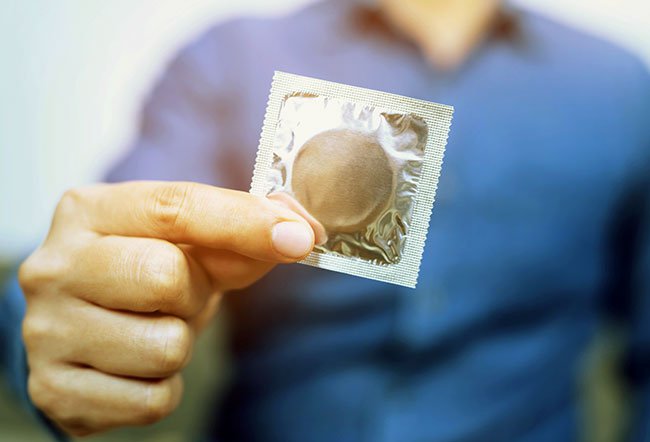Is There Birth Control for Men?

When we think of birth control, we typically think of the pill. But is there a birth control pill for men?
Although researchers are working on a pill for men, it doesn’t exist yet. Male contraceptives currently being researched include:
- Hormone-based pill containing dimethandrolone undecanoate for daily use.
- Pill containing a chemical called 11-β methyl nortestosterone dodecyl carbonate.
- Reversible inhibition of sperm under guidance procedure, which uses a chemical that is injected inside the vas deferens. This is being studied in India and is at the clinical trial stage.
Women tend to shoulder most of the burden and cost of birth control. However, men can also consider available methods of contraceptives to help bear the responsibility of birth control.
3 methods of birth control for males
1. Condoms
Condoms can prevent pregnancy up to 98% of the time. They help safeguard you against sexually transmitted infections, such as human immunodeficiency virus infection and chlamydia. This is not true of any other methods of contraception.
2. Withdrawal (pulling out method)
Also called "coitus interruptus" in Latin, withdrawal or pulling out is one of the earliest and most basic methods of birth control. However, it is also one of the least effective methods. Before you ejaculate, you pull your penis out of the vaginal canal.
There are a few advantages to using the pull-out approach. It has no negative side effects, is completely free, and has no effect on sexual sensations.
However, the strategy only works if done correctly. It requires you to pull out as soon as possible so that no semen lands on or inside your partner's vaginal area. You must be able to time it correctly and react quickly enough. This can be difficult, especially if you are young and have not had much experience with sex.
The method only works 78% of the time. Furthermore, the withdrawal method does not protect you against sexually transmitted diseases.
3. Vasectomy
Vasectomy is a method of sterilization done in males as a permanent and effective method of contraception to prevent pregnancy. The vas deferens (whose function is to carry sperm from the testicles to the penis) is cut and tied. This break in the continuity of vas deferens prevents the sperm from reaching the ova and thus prevents pregnancy.
The procedure is safe and a lot simpler than the female surgical sterilization procedure and can be easily done in the outpatient department. Hospital admission is not required.
What are the pros and cons of vasectomy?
Types
- Conventional vasectomy: Under local anesthesia, a small incision is made in the scrotum. Small pieces from both vas deferens are brought out, and their ends are tied away from each other.
- No-scalpel vasectomy: This is a recent advancement in the procedure that requires no incisions. Your doctor will simply feel the vas deferens through the scrotum and use a clamp to hold it in place. A very tiny hole is then made and the vas deferens are stretched out and cut. The ends are then stitched.
Benefits
- Low-risk procedure and can be done outpatient
- Cost-effective
- Good for people looking for a permanent solution
- Does not affect sex drive
- Recovery is fast
Side effects
- Mild pain after the procedure
- Rarely, it can cause inflammation, infection, or severe pain
- Slight discomfort around the testicles
- Rarely, hydrocoele or spermatocele may occur
Effectiveness
The efficacy of the procedure is 100% with no failure rate. Thus, there is no need to use additional methods of contraception. However, since there is no protection against sexually transmitted diseases, condoms are still required to prevent them.
Sperm already present in the spermatic tubules stay for some time (about 10-20 ejaculations), so you must use additional methods of contraception to prevent pregnancy during that period (for a few days after vasectomy).
Does getting a vasectomy put you at risk of prostate cancer?
Some people believe that getting the procedure predisposes them to get prostate cancer, but several scientific studies have shown no link between cancer and vasectomy.
